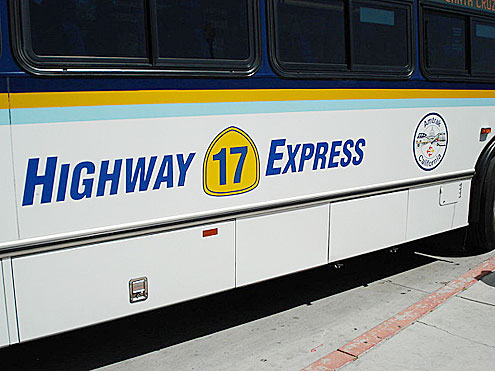
“This grant could not have come at a better time,” remarked Santa Cruz METRO CEO Alex Clifford. “Our agency has been facing a fiscal crisis that has prevented us from replacing our aging bus fleet and last year the Board directed us to seek opportunities to add electric buses to our fleet in an effort to reduce greenhouse gas emissions. Thanks to Congressman Farr’s efforts, we will use the federal assistance to address both of those challenges.”
There were $446 million in grant applications chasing only $55 million in grant money. METRO’s award was among the highest awards in the nation and the highest award in California. The grant announcement from the U.S. Department of Transportation said, “This project was competitively selected under the FY16 competition for the Low or No Emission Bus and Bus Facilities grant program.
“The Santa Cruz Metropolitan Transit District (METRO) will receive funding to purchase (three) zero-emission battery-electric buses,” said Clifford, “and an inductive charging system to operate on METRO’s Highway 17 Express connecting Santa Cruz residents with jobs in the high-tech industry in Silicon Valley. The buses are the first to help fulfill a local electric bus implementation strategy.”
In early June 2016, Caltrans announced a grant award of $709,292 to METRO to purchase a battery- electric (zero emissions) bus that will run as a new circulator service in downtown Watsonville. This project is funded through the State Cap and Trade Program — Low Carbon Transit Operations Program, which aims to curb climate change and emphasizes new and expanded services for disadvantaged communities.
•••
METRO provides fixed-route and Highway 17 commuter service to Santa Cruz County, transporting about 5.5 million passenger trips a year. METRO also provides paratransit service to Santa Cruz County with its ParaCruz service, providing about 98,000 trips per year. METRO’s operating budget in FY17 is $47 million.